Which of the following can decolourise bromine water solution?
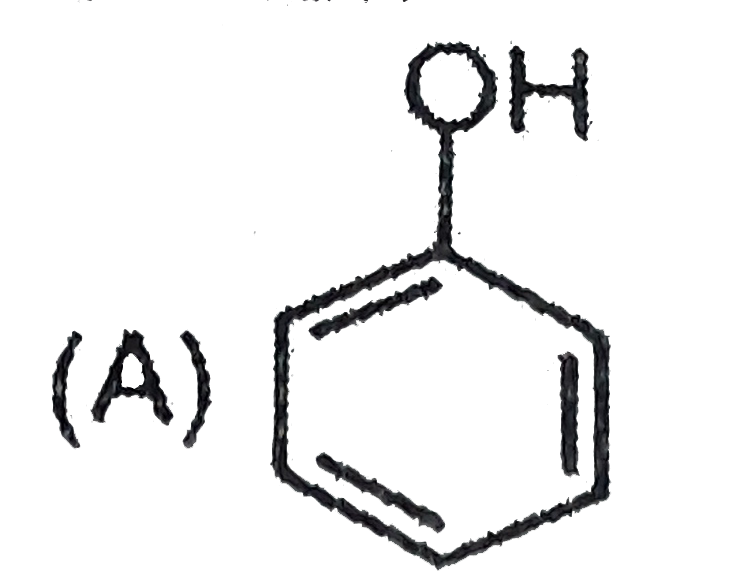
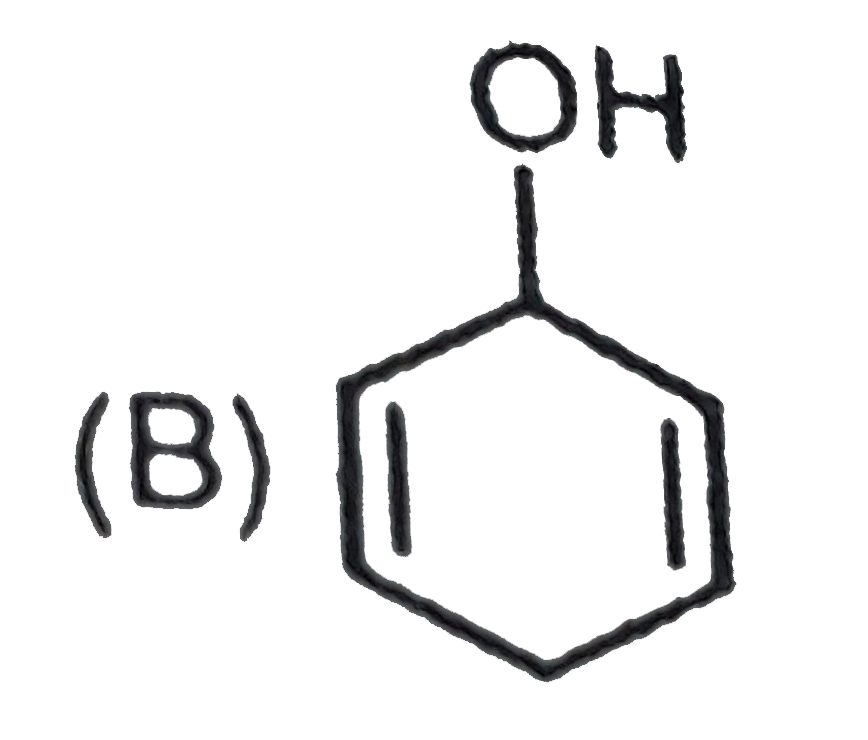
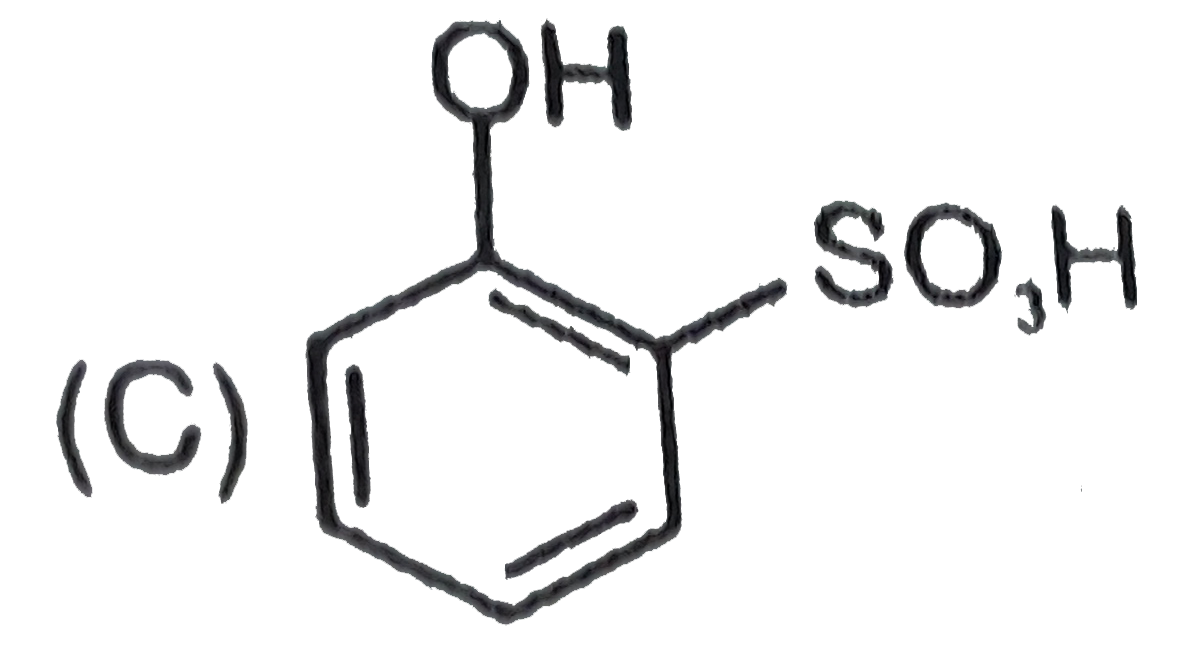
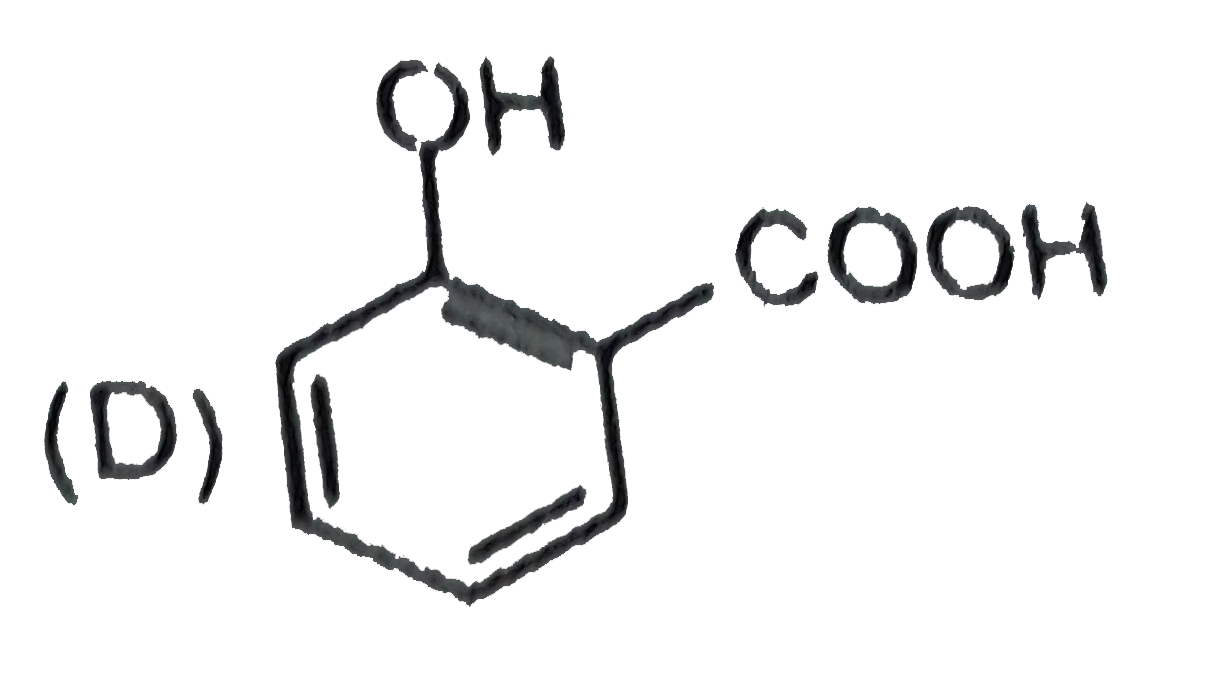
The correct Answer is:A, B, C, D
To determine which of the given compounds can decolorize bromine water, we need to understand the conditions under which bromine water changes color. Bromine water is typically orange to red in color, and it decolorizes when it reacts with compounds that contain double bonds (alkenes) or certain aromatic compounds that can undergo electrophilic substitution.
1. Understanding Bromine Water:
- Bromine water is orange to red in color. When it reacts with compounds containing double bonds, the color changes to colorless (decolorizes). This indicates the presence of alkenes or certain aromatic compounds.
2. Identifying the Compounds:
- We need to analyze each compound provided in the options to check for the presence of double bonds or functional groups that can react with bromine water.
3. Analyzing Compound A (Phenol):
- Phenol has a hydroxyl (-OH) group and a benzene ring. The -OH group activates the ring towards electrophilic substitution.
- Since phenol can react with bromine water, it will decolorize the solution, changing it from orange to colorless.
4. Analyzing Compound B:
- Similar to phenol, if this compound also contains a double bond and an -OH group, it will also activate the ring for electrophilic substitution.
- Therefore, this compound will also decolorize bromine water.
5. Analyzing Compound C:
- This compound has both an -OH group and a sulfonic acid (-SO3H) group. The -OH group activates the ring, while the -SO3H group deactivates it.
- However, the presence of the double bond means it can still react with bromine water and will decolorize it.
6. Analyzing Compound D:
- This compound contains a carboxylic acid group (-COOH) and an -OH group. The -OH group can activate the ring towards electrophilic substitution.
- Thus, this compound will also decolorize bromine water.
7. Conclusion:
- All the compounds analyzed (A, B, C, and D) can decolorize bromine water due to the presence of double bonds or reactive functional groups.
Final Answer:
All the given compounds (A, B, C, and D) can decolorize bromine water.
- Bromine water is orange to red in color. When it reacts with compounds containing double bonds, the color changes to colorless (decolorizes). This indicates the presence of alkenes or certain aromatic compounds.
- We need to analyze each compound provided in the options to check for the presence of double bonds or functional groups that can react with bromine water.
- Phenol has a hydroxyl (-OH) group and a benzene ring. The -OH group activates the ring towards electrophilic substitution.
- Since phenol can react with bromine water, it will decolorize the solution, changing it from orange to colorless.
- Similar to phenol, if this compound also contains a double bond and an -OH group, it will also activate the ring for electrophilic substitution.
- Therefore, this compound will also decolorize bromine water.
- This compound has both an -OH group and a sulfonic acid (-SO3H) group. The -OH group activates the ring, while the -SO3H group deactivates it.
- However, the presence of the double bond means it can still react with bromine water and will decolorize it.
- This compound contains a carboxylic acid group (-COOH) and an -OH group. The -OH group can activate the ring towards electrophilic substitution.
- Thus, this compound will also decolorize bromine water.
- All the compounds analyzed (A, B, C, and D) can decolorize bromine water due to the presence of double bonds or reactive functional groups.
All the given compounds (A, B, C, and D) can decolorize bromine water.
Topper's Solved these Questions
- AROMATIC COMPOUNDS BOOK - RESONANCE ENGLISHCHAPTER - AROMATIC COMPOUNDS EXERCISE - PART IV- COMPREHENSION
13 Videos
- AROMATIC COMPOUNDS BOOK - RESONANCE ENGLISHCHAPTER - AROMATIC COMPOUNDS EXERCISE - Exercise -3 Part-I
36 Videos
- AROMATIC COMPOUNDS BOOK - RESONANCE ENGLISHCHAPTER - AROMATIC COMPOUNDS EXERCISE - PART-II SINGLE OR DOUBLE INTEGER TYPE
7 Videos
- ATOMIC STRUCTUREBOOK - RESONANCE ENGLISHCHAPTER - ATOMIC STRUCTUREEXERCISE - ORGANIC CHEMISTRY(Fundamental Concept )
16 Videos
Similar Questions
Knowledge Check
Which of the following organic acid decolourises bromine water as well as forms anhydride ?
AHOOC−COOHBHOOC−CH2−COOHC D
D
Which one of the following will not decolourize bromine solution?
AC2H6BC2H4CC2H2DC3H6Which of the following can disperse benzene in water?
A B
B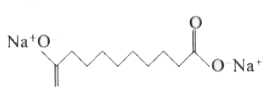 C
C D
D
Which of the following decolourise(s)Br2 solution ?
View SolutionWhich of the following when dissolving in water forms a solution which is non-conducting?
View Solutionwhich of the following can form buffer solution
View SolutionWhich of the following can be used as a buffer solution ?
View SolutionWhich of the following pair can't exist in solution
View Solution